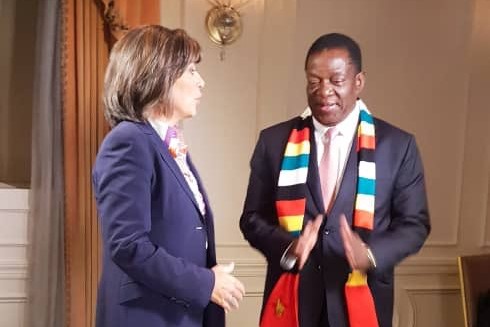by Tawanda Musariri
President Mnangagwa has told the world that his administration will not stand in the way of justice in the face of calls for finality in the 1980s killings following post independence disturbances in the southern parts of the country. He said his government will listen to and respond in accordance to the recommendations of the National Peace and Reconciliation Commission into the matter.
He was speaking to Christiane Anampour on CNN’s Anampor show.
President Mnangagwa is in his maiden appearance at the United Nations following his assumption of the reins of power in watershed elections won by his party, Zanu PF by a convincing majority. He is expected to address the global assembly on 26 September, during the afternoon session of the 73rd session of the 193 member United Nations General Assembly.
In his response to Anampour’s inquiry over his administration’s intentions on addressing the dissent sparked violence, the President said, “When I took over, I felt that we need to have finality to this issue, so I appointed National Peace and Reconciliation Commission (NPRC) which is now almost eight months into investigations, gathering evidence and whatever report they are going to make, I have promised the nation that I will make it public for everybody. We should be man enough as a government to accept whatever recommendations are made and see and see as a government how we can comply with the recommendations of the report.”
President Mnangagwa’s administration has shown a new penchant for peace, making the 2018 elections the most peaceful ever since the history of Zimbabwe. These elections opened democratic space, seeing the participation of 55 of 133 registered political parties forwarding 23 presidential participants, some of whom were not attached to any political party.
Asked on his possible reactions on alleged injustices and economic crimes committed by former president Robert Mugabe, President Mnangagwa had this to say, “We cannot put an agenda on a person; we put an agenda to make sure all those involved in corruption will account for the corruption they committed. We have a Zimbabwe Anti Corruption Commission; I have strengthened that one, which is indicative of my desire to deal with corruption, and so many cases are coming up, -if you are following events in Zimbabwe- of prominent persons who have been affected by the drive we are having against corruption. But indeed we will not focus on the past, we need to focus on the future because we are never going back to live in the past again. We are determined to move away and be a member of the international community, embraced by all societies.”




